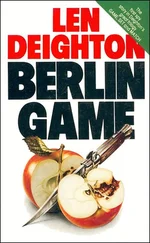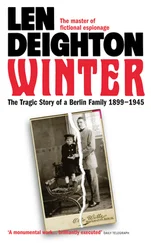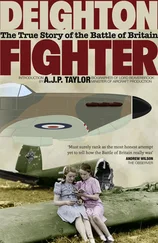After I had marked twenty-five days on my calendar K.K. brought me a slip that said, ‘The prisoner will receive a visitor for six minutes only.’ There was a lot of shouting in the corridor and K.K. let in a young Hungarian Army Captain. He spoke reasonably good English. We stood facing each other until he said, ‘You requested a meeting with the Great Britain Ambassador.’
‘I don’t remember it,’ I said slowly.
K.K. pushed me in the chest with force that thudded me against the wall of my cell and left me breathless.
The Captain continued, ‘I don’t question. I say this. You ask.’ He was charming, he never once stopped smiling. ‘A secretary is without. He sees you now. I go. Six minutes only.’
K.K. showed a man into my cell. He was so tall he beat his head against the door jamb. He was embarrassed and awkward. He explained reluctantly that the decision wasn’t his, that he was only the third under-secretary, and that sort of thing. He explained that there was no record of my being a British citizen, although he admitted that I sounded like an Englishman to him. He was so embarrassed and awkward that I almost believed that he was the British official he purported to be.
‘You wouldn’t think me impertinent, sir,’ I said, ‘if I asked you to give proof of identity.’
He looked madly embarrassed and said, ‘Not at all,’ a few times.
‘I don’t mean papers of identity, you understand, sir. Just something to show that you are in regular contact with the old country.’
He looked at me blankly.
‘Everyday things, sir, just so I can be sure.’
He was keen to be helpful; he came back with the everyday things and a load of reasons why the Embassy could do nothing. His greatest anxiety was in case I should implicate Dalby’s group, and he was always fishing for news of any statement I was going to make to the Hungarian Police.
Doing this while maintaining that I wasn’t a British subject was a strain even for old-school British diplomacy. ‘Don’t get sent to a Political Prison,’ he kept saying. ‘ They treat prisoners very badly.’
‘ This isn’t the YMCA,’ I told him on one occasion. I began to wish he’d stop coming. I almost preferred K.K. At least I knew where I was with him.
Every day seemed hotter and more humid than the previous one, while the nights became more chilly.
Although K.K. knew enough English for everyday needs, that is, to feed me or punch me on the nose, I found I could get a cup of sweet black coffee from one of the guards when I learnt enough Hungarian to ask. He was an old man looking like a bit player in a Ruritanian smaltz opera, sometimes he gave me a small piece of chewing tobacco.
Finally the tall British man came to see me for the last time. They went through the shouting and preliminaries, but this time it was only the Army Captain who spoke. He told me that, ‘Her Magestyries Government’ under no circumstances can regard me as a British subject. ‘Therefore,’ he said, ‘the trial will proceed under Hungarian law.’ The man from the Embassy said how sorry he was.
‘Trial?’ I said, and K.K. smashed me against the wall again, so I kept quiet. The British man gave me a sorry-old-chap look with a flick of the eyes, put on his rolled-brim hat and disappeared.
K.K. had a rare flash of altruism and brought me a black coffee in a real porcelain cup. Surprise followed surprise, for when I sipped it, I discovered it had a shot of plum brandy in it. It had been a long day. I curled my feet as near to my head as possible and curling my arms close, I went to sleep thinking, ‘If I don’t get out of here quickly you fellows are going to miss each other.’
Some nights they left the lights on all night, and on nights when I got every single K.K. colour wrong they sent the old moustachioed guard to keep me awake all night. He talked to me, and if K.K. was there, shouted at me not to lean against the wall. He talked about everything he knew, his family and his days in the Army, anything to keep me awake. I couldn’t translate a word of it, but he was a simple man and easy to understand. He showed me the height of his four children, photos of all his family, and now and again made a flickering movement with his hand that meant I could lean against the wall and rest while he stood half in the corridor listening for K.K.’s return.
Once every third day the Army Captain returned, and although I may have misunderstood, I believe he told me that he was my defence counsel. On the first visit he read my indictment; it took about an hour. It was in Hungarian. He translated a few phrases like ‘enemy of the State’, ‘high treason’, ‘plotting for the illegal overthrow of Peoples’ Democracies’ and there were a few ‘imperialisms’ and ‘capitalisms’ thrown in for good measure.
There were thirty-four marks on my door now. By resting and sleeping in snatches I had put a few of my nerve endings together but I was no Steve Reeves. The diet was keeping me pretty low physically and mentally. Each morning I got up feeling like the first frames in a Horlicks strip. It was pretty obvious that if I didn’t swim against the current there would be nothing left of me I’d known and loved. There was no chance of a ‘Houdini’ through the boltwork and a fighting retreat out of the main gates. It was to be a cool calm slow walk or I wouldn’t be there. Thus did I reason on my thirty-fifth day of isolation and hunger.
The only person around who broke the rules was the old man. Everyone else had the door locked behind them; the old man stood half-way out of it to give me a few minutes’ sleep. There was no alternative. I had no weapon but the door. I wanted to escape at night, so that meant I couldn’t use the light flex. The slop pail was too heavy to be used adroitly. No, it was the door, which meant, I’m afraid, that the old man got it. That night I was all set to try. Pretending to rest I leaned against the wall lining the door up against my target. He didn’t come close enough. I did nothing. When finally I went to bed I shivered until I went to sleep. It was a couple of nights later that the old man brought me a cigarette. I hit him with the door – the bolt mechanism swung against his head and he dropped unconscious to the floor. I dragged him inside the door; his breathing was irregular and his face very flushed. He was an old man. At the last minute my training almost failed. I almost couldn’t hit him as he lay there, the cigarette he’d brought me still in his hand.
I took his wooden HB pencil, relocked the door, and in his guard’s jacket and cap and my dark prison trousers, I softly descended the old dark wooden stairs. A light of low wattage glowed in the main hall, and from under the door to my right a slot of light and soft American music slid across to me. The main door was unguarded from inside, but I decided against touching it. Instead I took the pencil and opened the door 1 of an unlit room to my right. It must have been three and a half minutes at least since I had left my cell, walked the couple of yards to the stairs and negotiated them without causing a creak.
I closed the door behind me. The moonlight showed me the filing cases and books that lined the room. I ran my fingers round the window frame and encountered the electric wire alarm. Then I stood on the desk to remove the electric bulb. There was a loud cracking noise – I had cracked a pencil underfoot. The soft music from the radio in the next room ceased suddenly. I held my breath but there was only a whistle as the tuning control was turned. The exertion of stretching my hands above my head left me shaking and weak.
From my pocket I took the English sixpence that Anthony Eden’s friend had given me and slipped it into the socket before replacing the bulb. Still in the moonlight I got slowly down from the desk. I groped around the floor. I was lucky. There was a big two-kilowatt electric fire plugged into a wall point. The strong rosary that snuggle tooth had brought me as my second English ‘everyday thing’ I wrapped tightly round and round the elements. There was no time for electrical legerdemain. It was the work of a minute to switch on the wall plug and the light switch. There was no emergency lighting system and the flash and bang was pretty good. I could hear people blundering into doors and clicking switches. The main power fuse seemed to have gone, and the window opened easily without bells or buzzers. I slipped through and closed it behind me, although I couldn’t lock it.
Читать дальше












